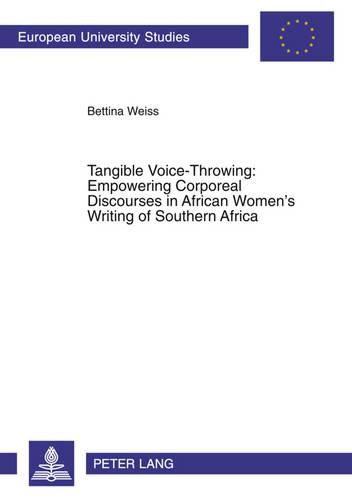Readings Newsletter
Become a Readings Member to make your shopping experience even easier.
Sign in or sign up for free!
You’re not far away from qualifying for FREE standard shipping within Australia
You’ve qualified for FREE standard shipping within Australia
The cart is loading…






This study is the first book-length analysis of African women’s writing of Southern Africa with a focus on writing the body. The thesis is that women are not voiceless, but hold a powerful, liberating potential: they throw their voices by implementing a strategic corporeal. Notably, this mode is not carried out in a way of emphasising corporeal difference by lack, but by attributing positive markers to the body. It reaches beyond a speaking which only represents women’s thoughts and emotions physically - a mode which might render the impression that they are incapable of expressing their conceptions and sentiments linguistically. It is an empowerment that reflects their skill to break up the bonds between language and body. This study is wide-ranging in its choice of authors and themes.
$9.00 standard shipping within Australia
FREE standard shipping within Australia for orders over $100.00
Express & International shipping calculated at checkout
This study is the first book-length analysis of African women’s writing of Southern Africa with a focus on writing the body. The thesis is that women are not voiceless, but hold a powerful, liberating potential: they throw their voices by implementing a strategic corporeal. Notably, this mode is not carried out in a way of emphasising corporeal difference by lack, but by attributing positive markers to the body. It reaches beyond a speaking which only represents women’s thoughts and emotions physically - a mode which might render the impression that they are incapable of expressing their conceptions and sentiments linguistically. It is an empowerment that reflects their skill to break up the bonds between language and body. This study is wide-ranging in its choice of authors and themes.